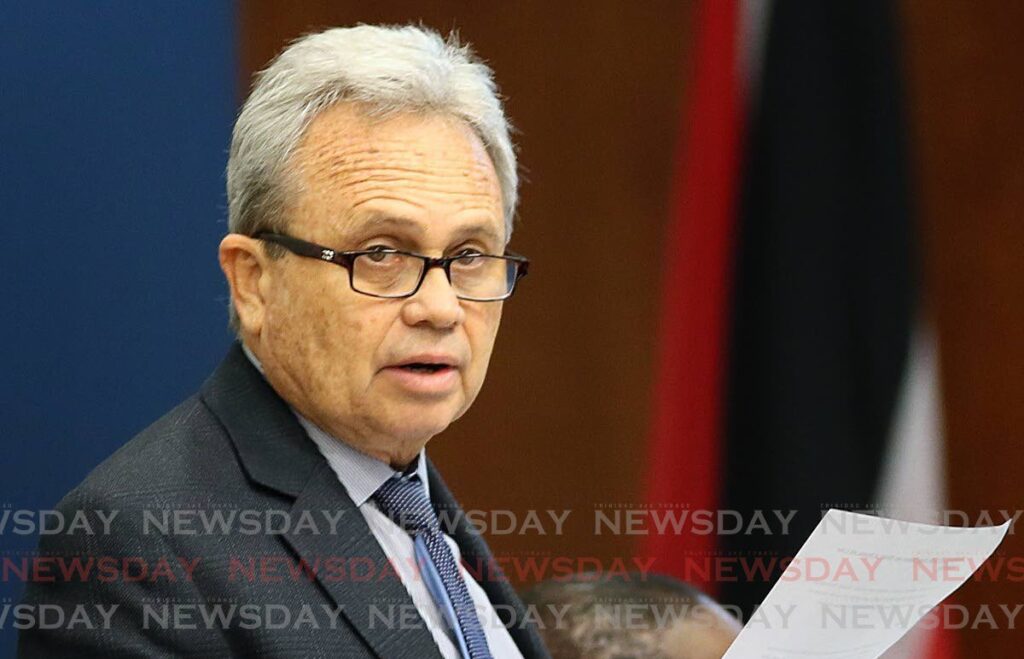 Finance Minister Colm Imbert. - File photo
Finance Minister Colm Imbert. - File photoFINANCE Minister Colm Imbert has rejected claims by the opposition UNC that any finance minister would be able to access people's personal tax information should the Miscellaneous Provisions (Global Forum) Bill 2024 become law.
He made this statement during his opening contribution to the debate on the bill in the Senate on September 17.
The House of Representatives passed the bill on September 13.
Imbert recalled that during the debate in the House, the Opposition claimed the bill would grant him access to people's personal tax information.
He said, "There is a lot of fearmongering taking place. The Minister of Finance cannot under any circumstances, access taxpayers' information held by the Board of Inland Revenue (BIR)."
Imbert added this was clear under all existing laws and any law the bill amended would not change this.
He repeated, "The Minister of Finance cannot, under any circumstances, access taxpayer information held by the BIR."
Imbert said this is "because Section 4 of the Income Tax Act, which is constitutionally protected provision, secrecy provision, explicitly prohibits this."
He added that act does not list the Finance Minister as a delegated authority that could receive this kind of information.
Imbert said, "Even though there have been different governments in Trinidad and Tobago over the last 50 years, I have never heard of any minister (of finance) trying to access taxpayer information, because they can't. It's illegal."
He said the bill reflected TT's commitment to global transparency, and he had a series of deadlines to get TT off the blacklist by year-end.
The bill proposes to amend several pieces of legislation, such as the Prevention of Corruption Act and the Proceeds of Crime Act so that TT can be compliant with the regulations of the Global Forum, an international body which seeks to implement global transparency and exchange of information standards on tax matters.
In the case of the Prevention of Corruption Act, the bill makes an amendment to the power of the police to inspect financial records and other documents. It stipulates that on an application from the Director of Public Prosecutions (DPP) for an order to authorise police entry, search and inspection of a premises to obtain financial information or other relevant documents, the judge shall consider whether providing tax information received by the Board of Inland Revenue (BIR) under a tax information exchange agreement is permitted by that agreement.
In the case of the Proceeds of Crime Act, the bill amends it to empower the police to apply to a judge to obtain information or documents while investigating the gain from a specified offence or drug trafficking.

 2 months ago
10
2 months ago
10
 English (US) ·
English (US) ·